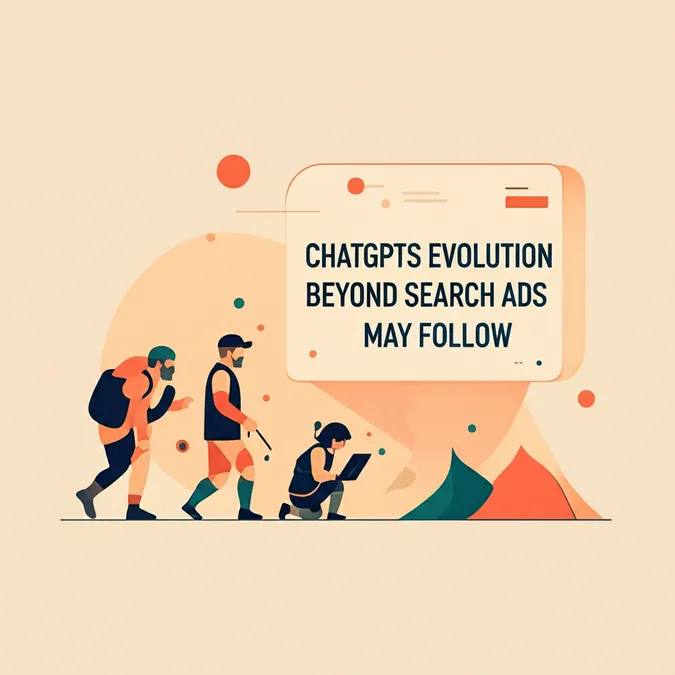Developer Offer
Try ImaginePro API with 50 Free Credits
Build and ship AI-powered visuals with Midjourney, Flux, and more — free credits refresh every month.
AI Shortcuts Diminish Student Brainpower Warn Educators
A new MIT study suggests that AI is degrading critical thinking skills which does not surprise educators one bit.
"Brain atrophy does occur, and it’s obvious," Dr. Susan Schneider, founding director of the Center for the Future Mind at Florida Atlantic University, told The Post. "Talk to any professor in the humanities or social sciences and they will tell you that students who just throw in a prompt and hand in their paper are not learning."
 The MIT study used EEG scans to analyze brain activity in the three groups as they wrote their essays.
The MIT study used EEG scans to analyze brain activity in the three groups as they wrote their essays.
MIT Study Reveals AI's Impact on Cognitive Skills
Researchers at MIT’s Media Lab found that individuals who wrote essays with the help of ChatGPT showed less brain activity while completing the task, committed less to memory and grew gradually lazier in the writing process over time.
A group of 54 18- to 39-year-olds were split into three cohorts one using ChatGPT, one using Google search and one “brain-only” and asked to write four SAT essays over the course of four months.
Scientists monitored their brain activity under EEG scans and found that the ChatGPT group had the lowest brain engagement when writing and showed lower executive control and attention levels.
 Dr. Susan Schneider says heavy AI use is degrading her students’ thinking skills.
Dr. Susan Schneider says heavy AI use is degrading her students’ thinking skills.
Over four sessions, the participants in the study’s ChatGPT group started to use AI differently. At first, they generally asked for broad and minimal help, like with structure. But near the end of the study period, they were more likely to resort to copying and pasting entire sections of writing.
Educators Witness Declining Student Engagement
Murphy Kenefick, a high-school literature teacher in Nashville, said he has seen first-hand how students’ "critical thinking and attention spans have been demolished by AI.
"It’s especially a problem with essays, and it’s a fight every assignment," he told The Post. "I’ve caught it about 40 times, and who knows how many other times they’ve gotten away with it."
 Eight researchers affiliated with the MIT Media Lab complex carried out the study over four months. Andy Ryan/ MIT
Eight researchers affiliated with the MIT Media Lab complex carried out the study over four months. Andy Ryan/ MIT
 Experts are concerned that students who grow up with AI could have their thinking skills especially stunted. Rawpixel.com – stock.adobe.com
Experts are concerned that students who grow up with AI could have their thinking skills especially stunted. Rawpixel.com – stock.adobe.com
The Science Behind Cognitive Decline and AI Over-reliance
In the MIT study, the “brain-only” group had the “strongest, wide-ranging networks” in their brain scans, showing heightened activity in regions associated with creativity, memory and language processing. They also expressed more engagement, satisfaction and ownership of their work.
"There is a strong negative correlation between AI tool usage and critical thinking skills, with younger users exhibiting higher dependence on AI tools and consequently lower cognitive performance scores," the study’s authors warn. "The impact extends beyond academic settings into broader cognitive development."
Asked to rewrite prior essays, the ChatGPT group was least able to recall them, suggesting they didn’t commit them to memory as strongly as other groups.
 High-school literature teacher Murphy Kenefick fears his students wouldn’t even care about the study’s findings. Courtest of Murphy Kenefick
High-school literature teacher Murphy Kenefick fears his students wouldn’t even care about the study’s findings. Courtest of Murphy Kenefick
 Nataliya Kosmyna of MIT Media Labs was the lead researcher for the study. MIT
Nataliya Kosmyna of MIT Media Labs was the lead researcher for the study. MIT
The ChatGPT group also tended to produce more similar essays, prompting two English teachers brought in to evaluate the essays to characterize them as “soulless” something teachers all over the country say they are seeing more regularly.
Robert Black, who retired last week from teaching AP and IB high school history in Canandaigua, New York, said that the last two years of his 34-year career were a “nightmare because of ChatGPT.”
"When caught, kids just shrug," he said. "They can’t even fathom why it is wrong or why the writing process is important."
 Researchers and experts are especially concerned about the degradation of critical thinking skills in young people due to AI usage. Gorodenkoff – stock.adobe.com
Researchers and experts are especially concerned about the degradation of critical thinking skills in young people due to AI usage. Gorodenkoff – stock.adobe.com
 The MIT study found that subjects within the ChatGPT group tended to produce more similar essays, prompting two English teachers brought in to evaluate the essays to characterize them as “soulless” Inna – stock.adobe.com
The MIT study found that subjects within the ChatGPT group tended to produce more similar essays, prompting two English teachers brought in to evaluate the essays to characterize them as “soulless” Inna – stock.adobe.com
AI's Role in Worsening Existing Educational Challenges
Black also points out AI has only worsened a gradual trend of degrading skills that he attributes to smartphones.
"Even before ChatGPT it was harder and harder to get them to think out a piece of writing brainstorming, organizing and composing," he told The Post. "Now that has become a total fool’s errand."
Psychologist Jean Twenge, the author of "10 Rules for Raising Kids in a High-Tech World," agrees that AI is just one additional barrier to learning for Gen Z and Gen Alpha.
She points out that international math, reading and science standardized test scores have been on the decline for years, which she attributes to pandemic lockdown and the advent of smartphones and social media.
 Dr. Jean Twenge says that smartphones and now artificial intelligence pose a threat to youth learning.
Dr. Jean Twenge says that smartphones and now artificial intelligence pose a threat to youth learning.
 Dr. Jean M. Twenge is author of the forthcoming book “10 Rules for Raising Kids in a High-Tech World.”
Dr. Jean M. Twenge is author of the forthcoming book “10 Rules for Raising Kids in a High-Tech World.”
"With the addition of AI, academic performance will likely decline further, as students who regularly use AI to write essays are not learning how to write," Twenge told The Post. "When you don’t learn how to write, you don’t learn how to think deeply."
The MIT study study was spearheaded by Media Lab research scientist Nataliya Kosmyna, who told Time Magazine that “developing brains are at the highest risk.”
Navigating AI in Education: Ban or Integrate Carefully?
While Toby Walsh, Chief Scientist at the University of New South Wales AI Institute in Sydney, Australia, acknowledges that the study’s findings are frightening, he also warns educators against outright banning it.
 AI professor Toby Walsh says that educators need to learn to integrate AI carefully.
AI professor Toby Walsh says that educators need to learn to integrate AI carefully.
"We have to be mindful that there are great opportunities. I’m actually incredibly jealous of what students have today," Walsh said, recalling his 15-year-old daughter recently using an AI voice to ask her questions in French as a study aide.
"I don’t think we should be banning AI," Walsh said. But, he added, "the concern is that AI surpasses human intelligence, not because AI got better but because human intelligence got worse."
Kenefick, meanwhile, imagines his students “wouldn’t care” about the study’s findings: "They just want the grade. They see no real incentive to develop any useful skills. It’s very troubling."
Compare Plans & Pricing
Find the plan that matches your workload and unlock full access to ImaginePro.
| Plan | Price | Highlights |
|---|---|---|
| Standard | $8 / month |
|
| Premium | $20 / month |
|
Need custom terms? Talk to us to tailor credits, rate limits, or deployment options.
View All Pricing Details

